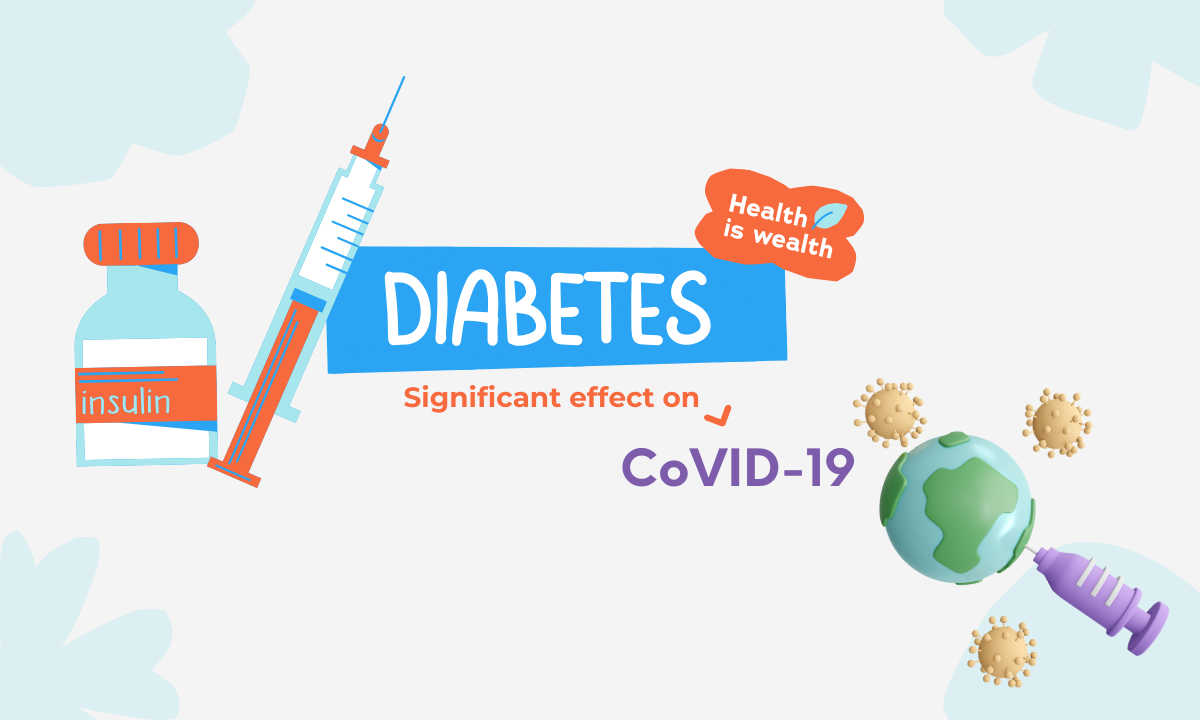UK Biobank research reveals significant impact of type 2 diabetes on COVID-19 outcomes
In a recent investigation reported in Communications Biology, a group of researchers explored the influence of type 2 diabetes and the genetic predisposition to this condition on the severity and mortality risk linked to coronavirus disease 2019 (COVID-19). The study utilized data sourced from the United Kingdom (U.K.) Biobank to delve into the interplay between these factors and the impact they have on the outcomes of individuals affected by COVID-19.

Background
Despite the widespread administration of vaccines worldwide, the impact of the COVID-19 pandemic endures, albeit in a milder form, characterized by the emergence of new variants of the severe acute respiratory syndrome coronavirus 2 (SARS-CoV-2). SARS-CoV-2 infections present with a diverse array of symptoms, ranging from asymptomatic cases to severe instances involving acute respiratory distress, pneumonia, and, unfortunately, fatalities.
Furthermore, a noteworthy proportion of COVID-19 cases progress into post-acute COVID-19 syndrome, commonly referred to as long coronavirus disease (long COVID). Substantial research has also highlighted that various clinical factors, including age, smoking habits, and the presence of underlying health conditions such as type 2 diabetes, obesity, cardiovascular disease, hypertension, and respiratory illnesses, contribute to an increased risk of severe COVID-19.
Moreover, extensive genome-wide association studies have demonstrated that genetic variants associated with a heightened risk of cardiovascular disease, type 2 diabetes, lung disorders, and those implicated in immune mechanisms are linked to an elevated susceptibility to severe SARS-CoV-2 infections.
About the study
In the present study, the scientists used U.K. Biobank data to investigate whether type 2 diabetes and polygenic risk scores for type 2 diabetes were associated with increased severity of SARS-CoV-2 infections and a higher COVID-19 mortality rate.
Additionally, they examined the effect of vaccinations on this association and evaluated the impact of numerous SARS-CoV-2 variants, including the recently emerged Omicron variants.
The polygenic risk scores for type 2 diabetes from the genome-wide association study summary statistics obtained from the U.K. Biobank were first used to determine the genetic predisposition for type 2 diabetes.
Here, to account for the confounding impact of body mass index (BMI) on type 2 diabetes, the researchers included BMI as a covariate while calculating the type 2 diabetes polygenic risk scores in the genome-wide association study.
Subsequently, they used the proportional odds models to determine whether type 2 diabetes and the genetic predisposition to type 2 diabetes were associated with increased severity of SARS-CoV-2 infections.
They also examined how type 2 diabetes or the genetic risk for type 2 diabetes impacted survival time when the individual was infected with SARS-CoV-2.
Furthermore, the impact on survival time was reexamined with respect to vaccination status and for a wide range of SARS-CoV-2 variants.
Lastly, the researchers also examined whether mortality rates were significantly different between three groups — COVID-19, type 2 diabetes, and genetic predisposition to type 2 diabetes — using a stratified survivor analysis.
Results
The findings indicated that type 2 diabetes, as well as polygenic risk scores for type 2 diabetes, were associated with increased COVID-19 severity. The mortality rate was also found to be higher for individuals with type 2 diabetes or a genetic predisposition to it.
Based on the time of infection, the mortality rate for type 2 diabetes patients infected with SARS-CoV-2 was two to seven times higher than for those who did not have SARS-CoV-2 infections.
The rate of fatalities was also found to be higher for the early SARS-CoV-2 variants, with the fatality risk decreasing across Alpha, EU1, and Delta variants to the Omicron variants.
Furthermore, vaccinated type 2 diabetes patients had a significantly lower risk of severe SARS-CoV-2 infections than non-vaccinated ones.
The association between polygenic risk scores for type 2 diabetes and increased risk of severe COVID-19 also indicates an interplay between the genetic factors underlying type 2 diabetes and COVID-19, providing potential research avenues to explore to understand the novel genetic factors that are linked to severe SARS-CoV-2 infections.
Conclusions
To summarize, the study examined the relationship between type 2 diabetes or the polygenic risk scores for type 2 diabetes and the odds of developing severe COVID-19.
The findings suggested that individuals who have either the genetic predisposition for or have type 2 diabetes are at an increased risk of severe SARS-CoV-2 infections and a higher risk of mortality due to COVID-19.
However, COVID-19 vaccinations were found to decrease the risk of severe COVID-19 and mortality in these groups.
Journal reference:
Lee, A., Seo, J., Park, S., Cho, Y., Kim, G., Li, J., Liang, L., Park, T., & Chung, W. (2024). Type 2 diabetes and its genetic susceptibility are associated with increased severity and mortality of COVID-19 in UK Biobank. Communications Biology, 7(1), 122. doi:

